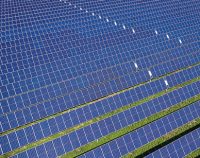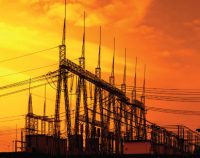Interior Electrical Distribution Systems: 3 PDH
$18.00
This course provides an introduction to interior electrical distribution systems for buildings and related infrastructure. Topics covered in this course include transformers, service entrances, switchgear, switchboards, panelboards, motor controls and motor control centers. After completing this course you will have gained knowledge of circuitry and electrical equipment found in buildings and how to design an interior electrical distribution system for buildings.
SPECIFIC KNOWLEDGE OR SKILL OBTAINED
This course teaches the following specific knowledge and skills:
- Learn how to select and specify transformers
- Have knowledge of service entrance requirements and learn about switchgear and switchboards
- Know the basic considerations when employing panelboards
- Know the requirments for motor control centers
- Know the fundamentals of motor controls and motor control circuites
- Know when to employ surge protection devices
- Understand Raceways and wiring devices
- Learn about emergency engine generator sets
- What is automatic transfer equipment
- Learn how to employ stationary batteries and battery chargers
CERTIFICATE OF COMPLETION
You will be able to immediately print a certificate of completion after passing a 15 question multiple-choice quiz. The quiz can be retaken unlimited times until a passing grade of 70% or better is earned. This course satisfies 3 professional development hours (PDH) of continuing education.
Related Courses
Forecasting Solar Radiation and Photovoltaic Power: 5 PDH
$30.00 Add to cartSolar resource forecasting is critical for the operation and management of solar power plants and electric grids. In this course the student will understand the basic concepts and various methods of solar irradiance forecasting as well as forecasting the power production of Photovoltaic (PV) power plants.Instructor: Juan Pesante, PESPECIFIC KNOWLEDGE OR SKILL OBTAINED
This course teaches the following specific knowledge and skills:
- Explain empirical and physical solar forecasting methods
- Explain statistical and machine learning methods
- Discuss forecasting the production of a PV power plant
- Discuss statistical error measures
- Explain probabilistic solar forecasts
CERTIFICATE OF COMPLETION
You will be able to immediately print a certificate of completion after passing a 20 question multiple-choice quiz. The quiz can be retaken unlimited times until a passing grade of 70% or better is earned. This course satisfies five (5) hours of professional development (PDH).
Preview CourseClick “Preview Course” to view prior to purchaseClick “Add to Cart” to purchase2017 NEC Significant Code Changes Part 2: 4 PDH
$24.00 Add to cartPart 2 of a multiple part series, this four (4) hour course covers and highlights some of the significant changes and updates in the 2017 Edition of NFPA 70: National Electrical Code (NEC) which was recently updated from the 2014 Edition of NFPA 70: National Electrical Code (NEC). The student will progress through all of article 400. The student will be identifying chapters, articles, and tables of where and what significant changes occurred (be it an addition, revision, or deleting), the student will review the 2017 version of the updated text, and understand the reason for the change with an explanatory brief.Instructor: Juan Pesante, PESPECIFIC KNOWLEDGE OR SKILL OBTAINED
This course teaches the following specific knowledge and skills:
- Become familiar with some of the significant changes including additions, deletions, and modification to the 2017 Edition of NFPA 70: National Electrical Code (NEC) from the 2014 Edition for chapter 4
- Comprehend, after reviewing the significant changes and additions to the 2017 Edition of NFPA 70: National Electrical Code (NEC) the large scope of the changes to the code, thereby seeking additional and more thorough reviews of the entire code
CERTIFICATE OF COMPLETION
You will be able to immediately print a certificate of completion after passing a 20 question multiple-choice quiz. The quiz can be retaken unlimited times until a passing grade of 70% or better is earned. This course satisfies four (4) professional development hours (PDH) of continuing education.
Preview CourseClick “Preview Course” to View Prior to PurchaseClick “Add to Cart” to Purchase and Access Quiz




